
Liberating Sofia
The Russo-Turkish War of 1877 – 1878 marked the end of the Ottoman domination of the Balkans, and set off the dominoes which would change the religious and political balance of power throughout Europe. The Turks won the Crimean War against Russia in 1856, but the cost of victory was so high that it set the conditions for defeat in 1878. More importantly, in 1878, the Russo-Turkish War was concluded by the Treaty of Berlin, where non-belligerent Western Nations such as the Austro-Hungarian Empire and the United Kingdom acquired Ottoman territory. This unfair territorial acquisition, specifically Austro-Hungary gaining Bosnia and Herzegovina, and the capital of Sarajevo, led to the assassination of Archduke Franz Ferdinand and the Great War.
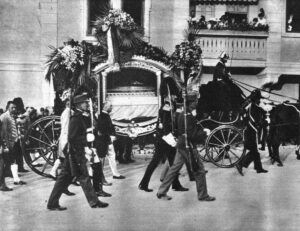
The Bulgarian April 1876 Uprising did not start the Russo-Turkish War, but it put Ottoman Muslim mistreatment of Balkan Christians during the uprising under an international media spotlight, and forced the Russian government to take note of the plight of their fellow Slavs under Ottoman rule. In 1875, the Ottoman government levied additional jizya taxes on the Balkan Christian population to help pay debts incurred during the Crimean War against Russia. A smaller rebellion in Herzegovina gave the Bulgarians hope they might be able to escape from Ottoman domination.
The uprising started on 20 April 1876, with attacks on Ottoman police stations by Bulgarian rebels. The rebels were largely unsuccessful, killing approximately 500 Ottoman combatants. The Ottoman reaction was severe and brutal. Although accounts vary, 15,000 – 30,000 rebels and Bulgarian Christian civilians were probably killed, with scores of villages and monasteries burned by Ottoman army and irregular Bashi-Bazouk troops. The Bashi-Bazouks, labeled as “Damaged Head” or “Crazy Head” were primarily Albanians or Circassians with a reputation for bravery, lack of discipline, and a habit for looting and killing innocent civilians. The use of Bashi-Bazouks was highlighted in European Press, as were their wanton massacres of Bulgarian peasants, and especially the brutal killings and torture of children. These massacres and the resulting press coverage caused the British government to initially refuse to help the Ottoman Empire when the Russo-Turkish War started on 24 April 1877.
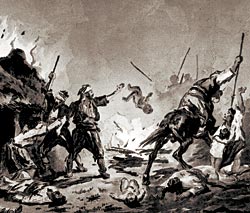
The Russian Empire’s aim during the war was to push the Ottomans completely out of Europe, and was only stopped by the intervention of Britain on 31 January 1878, which stopped Russian forces at San Stefano, just outside Constantinople. One of the other main goals was the liberation of Sofia, the Bulgarian capital. Russian and Romanian forces cleared the Danube of Ottoman troops, allowing the Russian forces to cross at their leisure, and push toward the city.
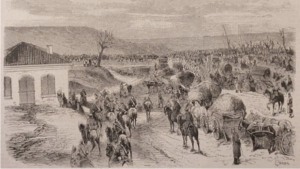
Early Russian mistakes were erased by Ottoman lack of initiative, and one town after another along the Iskar River fell to the Russian Army. The Western Army Group, led by Russian General Iosif Vladimirivich Romeyko-Gurko pushed aggressively over the Balkan Mountain Range toward Sofia. Gurko was a Belarusian who had fought the Turks in the Crimean War, and understood Turkish tactics. On 19 and 21 December 1877 (*all dates are old style), Gurko ordered attacks against Gorni Bogrov and Vrazhdebna, which set the stage for the attack on Sofia on 22 December 1877.
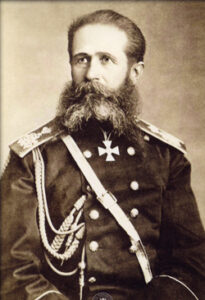
The battle itself lasted only 2 days. On 22 December 1877, Gurko ordered a total attack. The Ottoman Commander, Osman Nuri Pasha ordered a full retreat to avoid encirclement, abandoning 6,000 wounded and sick Ottoman soldiers to be captured. On 23 December 1877, The Russian Caucasian Cossack Brigade commanded by Colonel Ivan Tutolmin and the Grodno Hussar Regiment entered the city. Sofia was liberated.
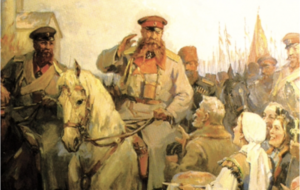
Even in the liberation of Bulgaria, the seeds of further conflict were sown. The Treaty of San Stefano, which was signed by the Russian and Turkish Empires outside Constantinople, created a “Greater Bulgaria” including lands including the lands between the Danube and the Balkan Mountain Range and most of Macedonia. The Treaty of Berlin, signed on 13 July 1878 reversed some of those gains, giving back Macedonia to the Ottomans, but the exclusion of the Bulgarians from the negotiating table during the signing of the Treaty of Berlin, created ill will and problems in the decades to come.
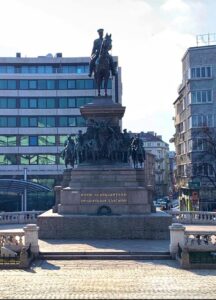
To continue reading about history in Bulgaria, please click here.
- January 4, 2021
- History
